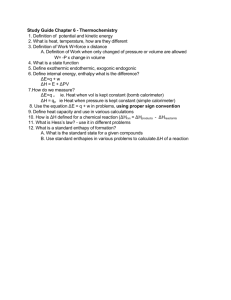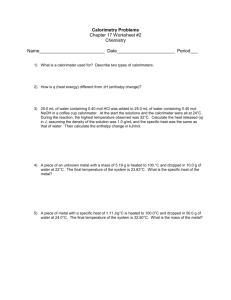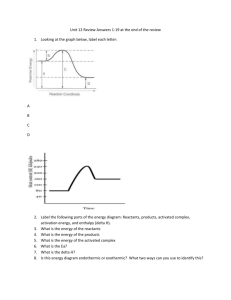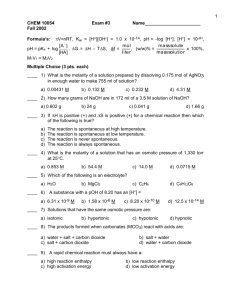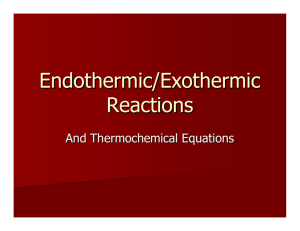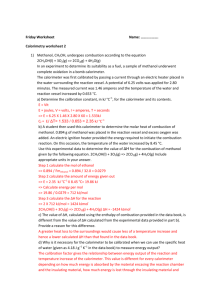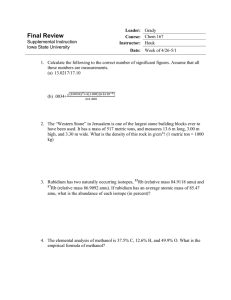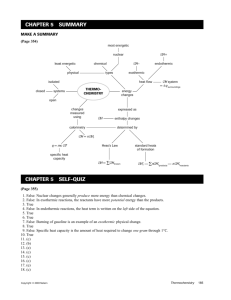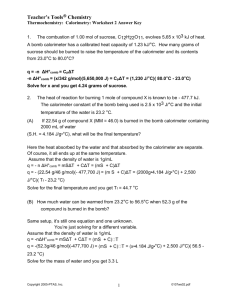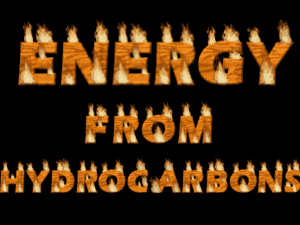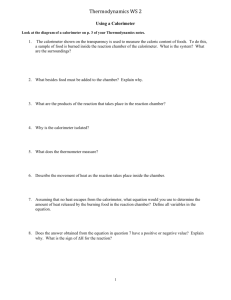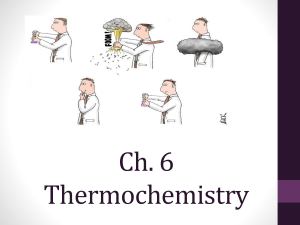Thermochemistry Quiz
advertisement
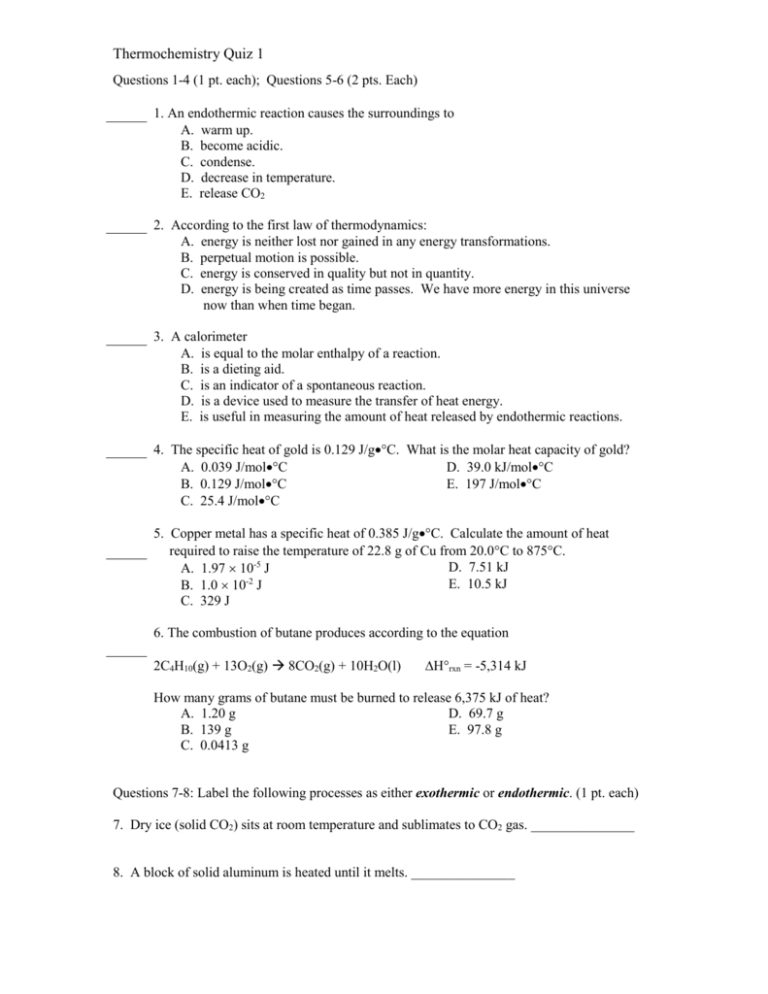
Thermochemistry Quiz 1 Questions 1-4 (1 pt. each); Questions 5-6 (2 pts. Each) 1. An endothermic reaction causes the surroundings to A. warm up. B. become acidic. C. condense. D. decrease in temperature. E. release CO2 2. According to the first law of thermodynamics: A. energy is neither lost nor gained in any energy transformations. B. perpetual motion is possible. C. energy is conserved in quality but not in quantity. D. energy is being created as time passes. We have more energy in this universe now than when time began. 3. A calorimeter A. is equal to the molar enthalpy of a reaction. B. is a dieting aid. C. is an indicator of a spontaneous reaction. D. is a device used to measure the transfer of heat energy. E. is useful in measuring the amount of heat released by endothermic reactions. 4. The specific heat of gold is 0.129 J/gC. What is the molar heat capacity of gold? A. 0.039 J/molC D. 39.0 kJ/molC B. 0.129 J/molC E. 197 J/molC C. 25.4 J/molC 5. Copper metal has a specific heat of 0.385 J/gC. Calculate the amount of heat required to raise the temperature of 22.8 g of Cu from 20.0C to 875C. D. 7.51 kJ A. 1.97 10-5 J -2 E. 10.5 kJ B. 1.0 10 J C. 329 J 6. The combustion of butane produces according to the equation 2C4H10(g) + 13O2(g) 8CO2(g) + 10H2O(l) Hrxn = -5,314 kJ How many grams of butane must be burned to release 6,375 kJ of heat? A. 1.20 g D. 69.7 g B. 139 g E. 97.8 g C. 0.0413 g Questions 7-8: Label the following processes as either exothermic or endothermic. (1 pt. each) 7. Dry ice (solid CO2) sits at room temperature and sublimates to CO2 gas. _______________ 8. A block of solid aluminum is heated until it melts. _______________ Thermochemistry Quiz 1 Table 1. Specific Heats of Various Metals Element Aluminum Tin Magnesium Lead Zinc J/gC 0.9012 0.2167 0.4686 0.1289 0.3883 9. In a coffee cup calorimeter, you place 15.0 mL of distilled water and measure the starting temperature to be 25C. You then place 2.44 g of an unknown metal (initially heated up to 99.8C) into the distilled water and insulate the calorimeter. After equilibrium, the final temperature of the water and the unknown metal is 26.1C. a. What is the specific heat (in J/gC) of the unknown metal? The specific heat of water is 4.184 J/gC. Assume that no heat is transferred to the calorimeter. Show your starting equations, all of your calculations, and box in your final answer. (7 pts.) b. Which of the metals in Table 1 is most likely your unknown? (1 pt.) 10. The combustion of one mole of benzene, C6H6, in oxygen releases 3268 kJ of heat. The products of the reaction are carbon dioxide and water. a. Write the thermochemical equation for the combustion of benzene. (3 pts.) b. Is the reaction exothermic or endothermic? (1 pt.) c. How much heat is given off when 100 g of benzene are burned? Show your work. (3 pts.)
